
14 minute read
Making online spaces safer
from 2020-09 Melbourne
by Indian Link
BY RHEA L NATH
Social media can be a great place to feel connected to others and express yourself freely, but at its worst, it can become an online platform for hate and abuse. On a daily basis, it’s easy to come across vile content, especially those targeted at women.
Thankfully, a new Twitter algorithm created by Queensland researchers hopes to nip this in the bud.
“Currently, it’s on users to report abuse they receive. With our solution, we can protect women by identifying misogynistic content online,” explained Professor Richi Nayak, a machine-learning researcher at Queensland University of Technology.

“Female users in particular can receive really brutal messages online. Just look at the treatment of female celebrities, or even Australia’s first female Prime Minister.”
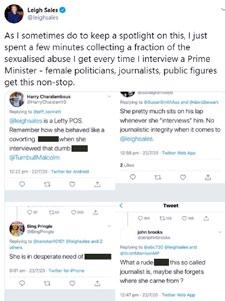
A deep learning algorithm was created by Nayak along with Professor Nicolas Suzor and research fellow Dr Md Abul Bashar in a collaboration between QUT’s faculties of Law, Science and Engineering, and the Digital Media Research Centre.
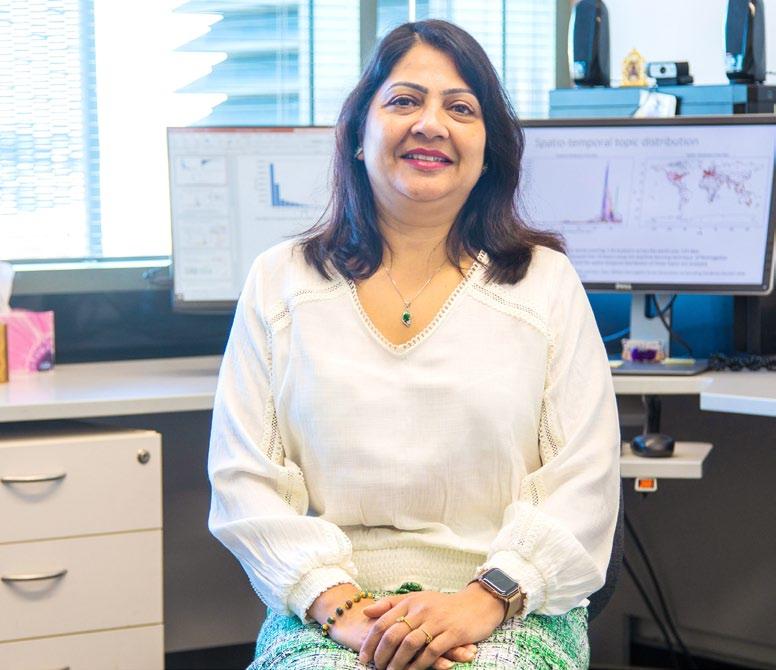
The algorithm, called ‘Long Short-Term Memory with Transfer Learning', mined 1 million tweets and narrowed them down by three abusive words – rape, slut, and whore.
The researchers also generated a rule-setto include parameters beyond abusive words.
“We looked at whether the content was targeted to a particular person or group, if there were specific threats or a wish for violence, if it included objectifying or sexual material, if it advocated hateful conduct, and so on,” Prof. Nayak told Indian Link.
This kind of ‘context learning’ has been crucial, as the presence of certain abusive words alone doesn’t mean that the content is misogynistic. Online, such tweets could be meant as a joke, or they could be sarcastic.
“You know how kids talk on social media these days,” the researcher chuckled.
Presently, a phrase like ‘go back to the kitchen’ might not typically be highlighted as problematic content because it doesn’t contain outright abusive language. Most systems would not typically identify such a tweet as misogynistic when it can’t understand the necessary context.
“Our algorithm proves that systems have the capability to understand context. This is crucial as learning misogyny is very different from merely identifying abuses online.”
To combat this hurdle, the Twitter algorithm was taught to identify linguistic patterns.
“It was developed to learn language patterns. It first learnt formal English language patterns, then we added more information like the language patterns employed in tweets which may not always be the most grammatically correct,” Nayak elaborated.
Over time, their model learns and develops its contextual and semantic understanding of language with continued exposure to content. The research team has currently reported 75 per cent accuracy in identifying misogynistic content through the algorithm, outperforming other tools that investigate similar aspects of social media language.
In the future, there’s scope for such an algorithm to be adapted to understand and identify racist or homophobic tweets too.
“With new described data sets, the algorithm has the ability to understand other context as well,” the researcher confirmed.
According to Nayak, research like this has the ability to alter the way we utilise social media on a daily basis.
“Currently, social media platforms can identify some patterns, and they have systems in place to get warnings about hateful speech, but they have a huge volume of content to go through. Moreover, there’s been arguments surrounding the freedom to share your views freely online,” she said.
The hope is that such an algorithm can improve a typical female user’s experience on social media.
Although it has been specifically programmed for Twitter at present, the algorithm couldeventually be deployed as a plug-in for users. In fact, Nayak says it could be expanded to accommodate misogyny in other languages like Hindi.
“I’m a machine learning researcher, so I use text mining to make sense out of large amounts of data. I was keen on using data science towards social good,” she said with a smile.
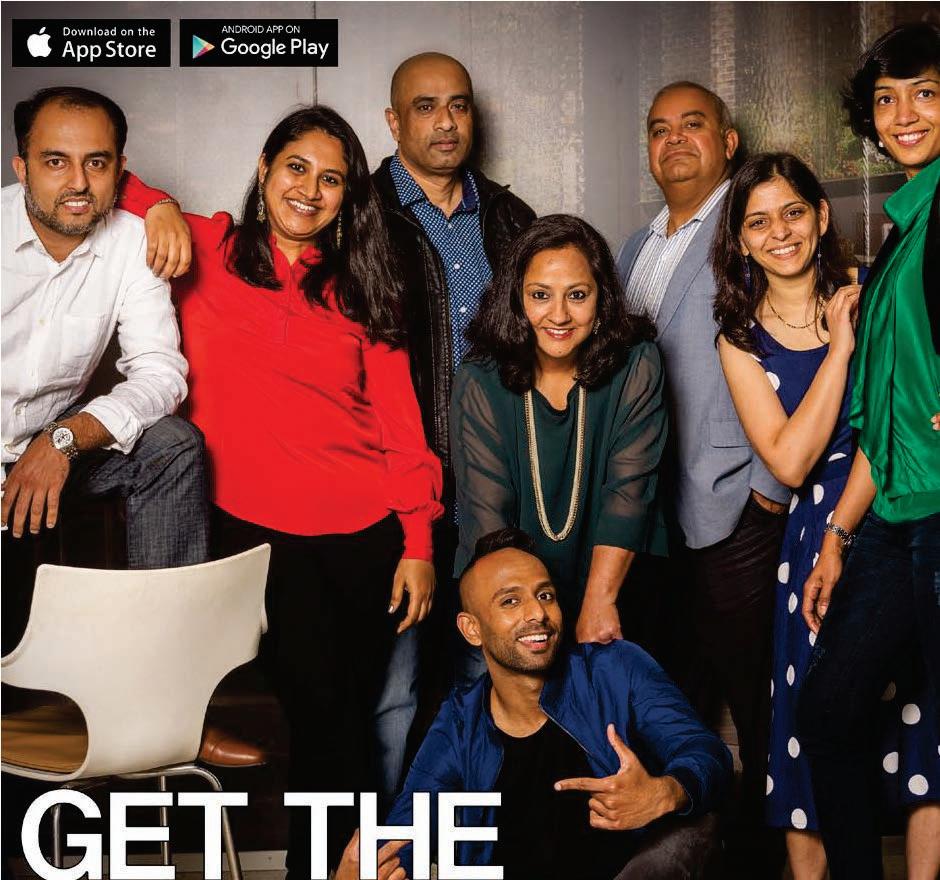

Indian origin scientists develop improved space batteries
NASA has funded research led by a team of Indian-origin scientists in the US who have developed lighter, faster-charging batteries for use in space. The improved space batteries are suitable for powering a spacesuit, or even a Mars rover.
Shailendra Chiluwal, Nawraj Sapkota, Apparao M Rao and Ramakrishna Podila, all of whom are part of the Clemson Nanomaterials Institute (CNI) at the Clemson University in South Carolina were part of the team that created these batteries.
Podila, an assistant professor in the College of Science’s Department of Physics and Astronomy, said the revolutionary new batteries could soon be used in US satellites. Most satellites mainly get their power from the sun. But the satellites have to be able to store energy for when they are in the Earth’s shadow.
“We have to make the batteries as light as possible because the more the satellite weighs, the more its mission costs,” Podila said.
The research, which was funded by NASA, appeared in the American Chemical Society journal Applied Materials and Interfaces.
Podila said that to understand the group’s breakthroughs, one could visualise the graphite anode in a lithium-ion battery as a deck of cards, wherein each card represents a layer of graphite that is used to store the charge until electricity is needed.
The problem, Podila said, is that “graphite cannot store much charge”.
The team opted to work with silicon, which can pack more charge, meaning more energy can be stored in lighter cells.
Rather than a deck of cards made of graphite, the new batteries uses layers of a carbon nanotube material called “Buckypaper”, with the silicon nanoparticles sandwiched in between.
Using batteries made of silicon and other nanomaterials not only increases capacity, it also allows for charging batteries at a higher current, which translates to faster charging times.
As anyone whose cellphone has ever died in the middle of a phone call knows, this is an important feature for battery technology, the authors said.
Lighter batteries that charge faster and offer greatly increased efficiency will not only be a boon to astronauts wearing battery-powered suits but also to the scientists and engineers who have to get the astronauts to their destinations.
“Silicon as the anode in a lithium-ion battery represents the ‘holy grail’ for researchers in this field,” said Rao, CNI’s director and the principal investigator on the NASA grant. He added that the new space batteries will soon find their way into electric vehicles.
India’s 1st female cardiologist dies of COVID at age 103
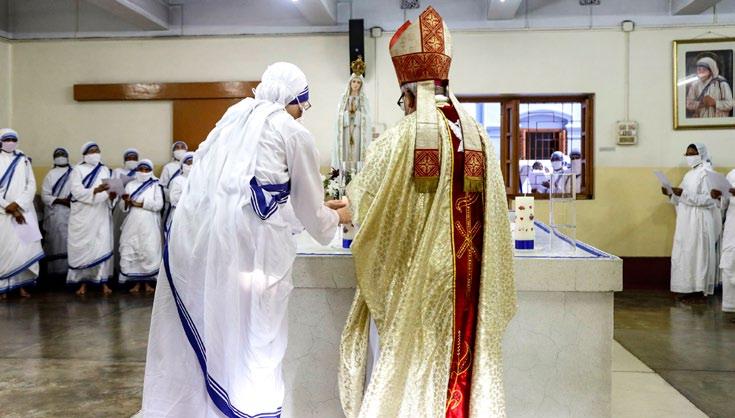
Dr S. Padmavati, India’s first female cardiologist, has passed away due to COVID-19. She was 103 years old, and had been battling the disease for 11 days.
“Our very own Madam Padmavati has left us all, after her centurial terrestrial journey. She fought corona bravely but chose to move on at 11.09 p.m. on August 29. Let us keep her in our prayers forever and long,” said O.P. Yadava, Chief Executive Officer of Delhi’s National Heart Institute.
According to another statement by the National Heart Institute, she was admitted with COVID-19 and had breathing difficulty and fever.
“She developed pneumonia in both lungs and needed ventilator support. However, she sustained a cardiac arrest and passed away,” it said.
The noted cardiologist had set up the National Heart Institute of the All India Heart Foundation and had served as its Director and President. She was also a recipient of the Padma Vibhushan, the second-highest civilian award in India.
Born in Myanmar on June 20, 1917, Padmavati earned an M.B.B.S degree from Medical College Rangoon. She had to leave the country due to the Second World War and settle in India.
She pursued post-graduate studies in the UK and specialised in cardiology in Sweden and the US at the Johns Hopkins Hospital and Harvard University after the war ended in 1945.
Her research work has been on rheumatic heart disease, cor pulmonale, hypertension and coronary artery disease with special reference to epidemiology and prevention.
The acclaimed doctor has published extensively in prestigious journals in India and abroad.
She taught undergraduates, post-graduates and post-doctoral fellows for over 45 years.
Apart from the Padma Vibhushan in 1992, she was also the recipient of the Padma Bhushan in 1967, and Harvard Medical International Award in 2003.
Indian start-ups recruiting talent from banned Chinese apps
A number of Indian start-ups in the field of social media have confirmed that they are attracting talent from banned Chinese competitors amid uncertainty over their India operations in the long run.
Chinese app Byte Dance, which owns TikTok and Helo, has nearly 2,000 employees in India.
“We’ve got various interests from the employees of ByteDance and other competitive companies. We have received close to 100 resumes from them,” said Sumit Ghosh, CEO and Co-founder of Chingari.
The homegrown short video app Chingari had recently raised 1.3 million (around Rs 10 crore) in a seed round. It has approximately 25 employees.
Another Indian short video-making app Rizzle has said that about 10 former TikTok employees have joined it.
“Rizzle attracts a number of sharp engineers, marketers, and other talented individuals from a variety of companies across India, which includes Byte Dance among others. An approximate of 10 employees have joined us,” said Lakshminath Dondeti, Co-founder of Rizzle.
Soon after India announced the ban on TikTok, along with 58 other Chinese apps, in July, TikTok CEO Kevin Mayer said that employees are the company’s “biggest strength” and their well-being is its “topmost priority”.
However, these assurances appeared to be not enough to calm the minds of many of the company’s anxious employees.
Another short video-sharing app Mitron, which became popular in the wake of the anti-China sentiment, is also looking to hire “the best talent in the country.”
“At Mitron, we are hiring the best talent in the country across product, engineering, marketing and other functions and give them a platform where they can impact the experience of millions of users,” said Shivank Agarwal, Co-founder and CEO, spent 45-years serving for the poor, sick, orphaned and dying, died in Kolkata on Sept 5 1997, aged 87.
Mitron. “We look for specific skills that the role requires irrespective of which company they come from.”
It has now emerged that what is TikTok’s loss could be gains for the Indian start-ups that are trying to fill the gap left vacant by the ban.
However, all these apps will have to deal with the challenge of holding on to their users and attracting top-notch creators to emerge successful in the long term.
APAC firms are changing their marketing strategy due to the pandemic
With habits of consumers changing significantly due to COVID-19 disruptions, organisations in the Asia Pacific (APAC) region are transforming their long-term marketing strategy.
According to a survey by Adobe, the results showed that around 80 per cent of organisations in countries like India and China are likely to have a COVID-19 taskforce to manage messaging and campaigns.
Organisations in these two countries are also expected to be significantly quicker in returning to pre-COVID level of investment in marketing than those in other countries.
“This year has brought about a broad shift in consumer behaviour and attitudes. In line with this, marketers are modifying their customer experience strategies to address different groups with relevant messages, more so than ever before,” Sunder Madakshira, Head of Marketing, Adobe India, said in a statement.
“It is clear from the results of this study that brands that are agile in pivoting to a digital modus operandi and have responsive campaigns that deliver authentic, meaningful and responsible communication stand to succeed in the long run.”
In response to the social distancing mindset, more than half of the respondents have shifted imagery or language in their recent marketing campaigns.
Those in Australia were less likely to have shifted messaging, with those in China and India being more likely.
The most commonly shifted elements are visuals of people touching and language that describes close interactions.
Given the situation, there seems to be a general sense that brands have a duty to proactively offer help or provide special offers to customers at this time. According to the study, this sense of duty among marketers is strongest in China and India, and weakest in Australia.
Almost seven in 10 marketers are currently working from home across India, Australia, China and Singapore as compared to nearly half of them working from home on a weekly basis or more prior to COVID-19.
The study surveyed 1,200 marketers across China, India, Singapore and Australia who are directly involved in their
The world’s highest bridge: A general view of a railway bridge under construction on the Chenab River to connect Udampur-SrinagarBaramulla in the Reasi district of Jammu and Kashmir. The Indian Railways project is likely to be completed by August 2022. The 1.3 km long rail bridge will be able to withstand an earthquake measuring more than 7 on the Richter scale.
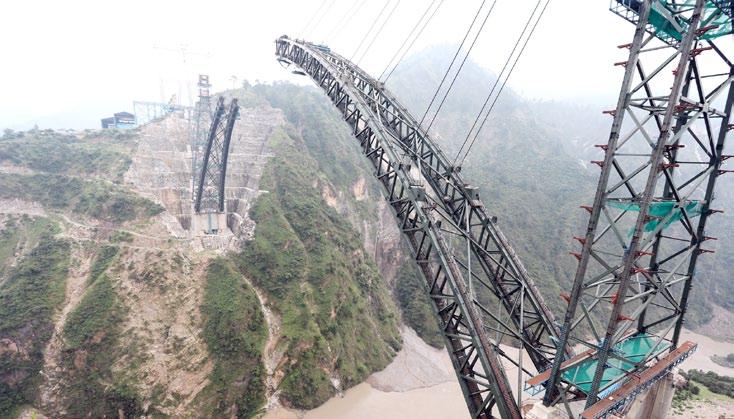
AP brand’s marketing activities, and have an analyst role or higher.
Indira Gandhi Peace Prize 2019 presented to David Attenborough
Noted broadcaster and natural historian David Attenborough has been presented the Indira Gandhi Peace Prize 2019 by the Indira Gandhi Memorial Trust.
Attenborough has been given the prize for "revealing the wonders of the natural world, educating and entertaining generations of people through his films and books for tirelessly working to awaken humankind to the need to preserve and protect the biodiversity on our planet, and advocating the necessity to live a sustainable and harmonious way of life, working with rather than against nature," the citation read.
Speaking on the occasion, former Prime Minister and senior Congress leader Manmohan Singh underlined the importance of climate and environment in the backdrop of the current COVID-19 pandemic.
"It doesn't need an epidemic to tell us that we are not in good shape. Climate change, the assault on the oceans, the pollution of the atmosphere, the junk floating about in space, the reduction of forest cover, the extinction of life in rivers, the reduction of natural habitat for any life other than humans - all this is evident to anyone," the former Prime Minister said.
Congress President Sonia Gandhi, referring to late former Prime Minister Indira Gandhi after whom the prize has been named, said: "India needed to accelerate the pace of investment, and expand its economic infrastructure. But at the same time, she (Indira Gandhi) was very sensitive to the imperative of maintaining what she would often call ecological balance."
She added, “Sir David through his prodigious creativity in educating humankind with brilliant films and books about the natural world. And he has, of late, been the most sensible voice warning us that we, more than anything else, are responsible for the accelerating threat to the environment on our planet.”
Indian tour company announces ‘Bus to London’ service
A private Indian tour company has announced a bus service from Delhi to London where the travellers will cover 18 countries and 20,000 km in 70 days. Adventures Overland, based in Gurugram, has announced the “first-ever hop-on/hop-off bus service between Delhi and London”, named Bus to London. People taking this tour will travel through Myanmar, Thailand, Laos, China, Kyrgyzstan, Uzbekistan, Kazakhstan, Russia, Latvia, Lithuania, Poland, Czech Republic, Germany, Netherlands, Belgium and France. A special 20-seater bus, equipped with business class seats, is being built for this trip. Apart from the 20 passengers, there will be a driver, an assistant driver, a guide and a helper. The guide will change at regular intervals during the trip.
The company will also take care of the visa arrangements of the passengers.
The trip will be divided into four categories and passengers can choose different destinations according to their liking and convenience. If they avail of the whole trip from Delhi to London it will cost them Rs 15 lakh (approximately AUD 28,000) per person.
The idea materialised after travel enthusiasts Tushar Agarwal and Sanjay Madan took a road trip to London in 2017, 2018 and 2019.
“We planned this trip after a lot of people passionate about travelling expressed their wish for a road trip to London. This was announced on 15 August and we hope that the first bus to London will be flagged off in May 2021,” said Adventures Overland cofounder Tushar Agarwal.
They have not started taking registrations yet and plan to commence once they can take stock of the coronavirus situation in all the countries visited.
“All the facilities will be provided during the 70-day trip. Arrangements for stay will be made in 4-star or 5-star hotels and passengers will also be provided Indian food in all the countries,” Agarwal added.
Indian-origin German cricketer makes women's T20 history
Indian-origin cricketer Anuradha
Doddaballapur, captain of the German cricket team, has made history by taking four wickets in four balls in a match against Austria. Her feat helped Germany win by 137 runs in the fourth T20 international of their Austrian tour.
This marks the first time in women’s T20 international cricket that a bowler has taken four wickets in four consecutive deliveries.
She finished with an incredible 5/1, surpassing Lasith Malinga’s 5/6 against New Zealand in 2019. This gives Doddaballapur the record of best T20I figures by a captain. This feat has only previously been done by Sri Lanka’s Malinga and Afghanistan’s Rashid Khan.
In this series against Austria, the German women’s team broke a number of records and won all five of their matches. The T20 series also marked return of women’s international cricket since the ICC T20 World Cup 2020 final between India and Australia, held in Melbourne Cricket Ground back in March.
“I’d like to thank everyone at Austria Cricket for hosting us despite the current circumstances. We are excited to take the field again after a seemingly long break,” 33-year-old Doddaballapur had said at the beginning of the series.
The German team, known as the ‘Golden Eagles’ and led by Doddaballapur, rank 27 in the ICC T20I women’s rankings. They last played an international match in February against Oman, as part of a 4-0 series clean sweep.
According to a recent ICC media release, women’s cricket is growing rapidly, with overall participation increasing 155 per cent since 2016.
Akshay Kumar unveils ‘FAU-G’ as alternative to banned PUBG
Akshay Kumar has announced a multiplayer game titled ‘FAU-G: Fearless and United Guards’ that will support Prime Minister Narendra Modi’s ‘Atmanirbhar Bharat’ movement.
The game aims to provide an Indian alternative to popular mobile game PlayerUnknown’s Battlegrounds (PUBG). FAU-G has been developed by nCore Games under the mentorship of Kumar. 20 per cent of the game’s proceeds will be donated to a trust for Indian soldiers.
The game is expected to be based on real scenarios encountered by the Indian security forces to deal with both domestic and foreign threats and it will be available on the Google Play Store and the Apple App Store.
PUBG has been pulled out from both Google Play Store and Apple App Store in India following the directive from the Indian government. It is no longer available to download for the Android and iOS users in the country. However, the game can still be played for users who have it installed on their smartphones sans updates.
PUBG was banned on an order by the Ministry of Information and Technology (MeitY), which also banned 117 other popular apps from China over national security concerns. In June, 59 apps were banned including TikTok and another 47 apps were suspended in July.
The PUBG game, which has more than 600 million downloads and 50 million active players globally, has millions of users, especially young, in India. It was not banned in India earlier as it is not entirely Chinese, having been created and managed by Bluehole, a South Korean organisation.
China has termed the action as ‘discriminatory restrictions’ on Chinese companies and alleged that it violated World Trade Organisation (WTO) rules.
Indian Supreme Court puts Netflix series ‘Bad Boy Billionaires’ on indefinite hold
The much-awaited Netflix series Bad Boy Billionaires: India has been put on hold after representatives of Ramalinga Raju (known for the Satyam Computers scandal) and a representative of the Sahara Group (whose chief Subrata Roy is under investigation) filed injunctions against its release.
The series was set to explore the investigations and scandals of big names like Vijay Mallya of Kingfisher, Subrata Roy of Sahara India, jeweller Nirav Modi, and Ramalinga Raju of Satyam Computers.
While Netflix has refused to comment on the issue, the show’s director Dylan Mohan Gray took to Twitter to express his displeasure, although those tweets have since been deleted.
Indian filmmakers have come out in support of the series, arguing that these true stores “must be told”. Anubhav Sinha, the director of Thappad, pointed out that the scandals have been covered in TV and print media, but are now being censored in cinema.
While Subrata Roy’s counsel had approached a local court in Bihar regarding the series, Ramalinga Raju had approached a Hyderabad civil court for the same. The series does not have a special episode for diamond merchant Mehuk Choksi, but the businessman had approached the Delhi High Court, seeking a preview of the series before it can be released.
Netflix’s legal counsel has said that Bad Boy Billionaires: India “has not tried to defame anyone” and is merely “an investigative docuseries based on interviews as well as the facts which are available in public domain.”
IANS







